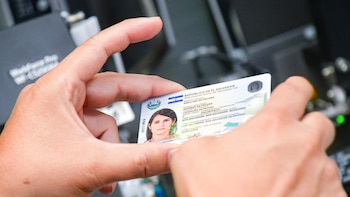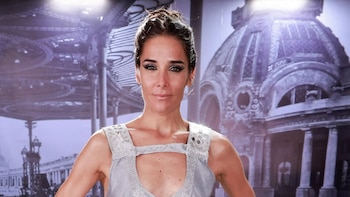
(ATR) One of the chief strategists of Rio de Janeiro’s Olympic bid says the World Cup gave Brazil confidence it needed to deliver an Olympics, and that the "additional challenges" of bringing the Olympics to a new part of the world should be embraced.
In an exclusive interview with Around the Rings, Mike Lee, who served as senior adviser to the Rio 2016 bid, shares his insights gained from the World Cup. He spent five weeks in Brazil overseeing the work of his firm, Vero Communications, as it worked with host city Belo Horizonte. He visited several of the other 2014 hosts during his stint in Brazil.
The On the Record below has been condensed for length.
Around the Rings: What was your impression of Brazil from the World Cup and what was your take away from being there for a few weeks?
Mike Lee: My overriding impression was that the World Cup was good news for Rio 2016, despite some of the dire predictions of troubled chaos and security problems and unfinished venues. The truth is that the World Cup was a very positive and inspirational experience. Operationally, things worked. Like any mega event, there were issues, but I think they proved the skeptics wrong.
ATR: Did anything surprise you in your time in Brazil?
ML: Brazil is a country that I have gotten to know. It’s complex, dynamic, varied, and huge, so you see things with that understanding, but I think that everybody involved was very pleased with the delivery and the operational smoothness. It may be a bit of a pattern emerging when it comes to mega events that in the buildup, there’s a wave of negative stories and chaos, but when it comes to the event itself, that’s rarely the case. Certainly, Brazil suffered from some challenges ahead of the tournament starting, no one can doubt that. It isn’t that the media stories were wrong, but what was wrong was the prediction that it was going to lead to major issues at the tournament.
ATR: Do you think that the World Cup exposed any particular strengths for the 2016 Olympics?
ML: I think there were a number of things there. One, it gives a renewed sense of confidence in Brazil’s ability to deliver, and that’s a very positive boost to Rio 2016. It was a sign of the legacy that came in a number of the host cities, which is a reminder of the scale of the legacy that the mayor of Rio has been pointing out. There was a powerful sense of welcome that Rio and Brazil can give to competing teams and visiting fans. There was a real sense of celebration around the World Cup, and you saw that strongly in Rio.
I think that some of the lessons to be learned [go] back to some of the issues that came out of the Confederation’s Cup. Public support can’t be taken for granted. You have you have a positive and sustained communications program, which I know Rio 2016 believe in and are committed to. There can be more confidence for Rio 2016 partly because of the lack of protests during the World Cup and partly because their engagement is important in terms of the project being successful and having public engagement.
I think also the IOC showed [more] empathy and understanding of the dynamics of Brazil and Brazilian policy than FIFA did and that’s important. FIFA had this great tournament, but their support in Brazil was very low. Lessons need to be learned from that.
ATR: What about any weaknesses with Brazil’s Olympics plan? Do you think the World Cup showed any of those?
ML: I think what the World Cup showed was that stakeholders and delivery partners at a local, national, and international level have to work together. I think the way the different partners collaborate and make sure that the integrated delivery of venues and transport. There is a flow of positive news about the steps being taken. But no one involved is shying away from the fact that of course there are challenges. The sailing test event is a reminder that there are issues that need to be addressed in Guanabara Bay, and work on the golf course needs to be stepped up.
One of the comparisons that I made is that all of those dire warnings ahead of the World Cup proved to be false predictions, and that could become a pattern for Rio 2016. Rio 2016 is a professional organization. They’re focused. They have good relationships with the city and state and federal government.
ATR: You mentioned that there has been a constant flow of fairly critical media reports about the Olympics. You do have some experience with Rio 2016, what sort of advice would you give to Rio to strengthen its message and its communications ahead of the Games?
ML: The Rio colleagues are already very active on those fronts and they are stressing delivery. I think there have been a number of stories confirming the progress being made and addressing areas where concerns have been raised. The dialogue and reassurance there has been coming through since SportAccord. I also think that it’s a part of the work of Rio 2016 and it becomes more important to engage with the Brazilian population because the message isn’t just about the weeks of the Olympic Games. It’s about improvements in infrastructure, long-term benefits, and legacy.
ATR: With two years to go, are you confident in Rio’s ability to stage the Olympics?
ML: I’m a little biased because I believe in the project, but I know the commitment is there – not just from Rio 2016, but from the mayor, from the state, and from the federal government. I suspect along the way, there will be the occasional scare story and occasional moments of controversy, but I have a strong impression that it’s on track and will be delivered on time.
One final thing to say is this: if you are taking mega events to new places, and we need to remind ourselves that this is the first ever Olympic and Paralympic games in South America, you’re bound to have additional challenges. But that’s part of the excitement, part of being global, and part of having new environments and different cultural experiences. In a way, this has to be embraced as a part of the expression of the global movement.
Interview conducted by Ed Hula III
Homepage photo: Getty Images
20 Years at #1: Your best source of news about the Olympics is AroundTheRings.com, for subscribers only.
Últimas Noticias
“Project Merciless”: Qatar’s plan to spy on top FIFA leaders and ensure the organization of the 2022 World Cup
An investigation reveals that more than 380 million dollars were spent to hack personalities. The spies violated email accounts, computers, phones and investigated friends and family of world football leaders and advisors.

2021 Esports business summit planned for Las Vegas - conferences & conventions

Sportaccord delegation visits ekaterinburg - conferences & conventions

Fifa adds hisense for 2022 world Cup - sponsor spotlight

Fifa boss Infantino wins court battle - federation focus




